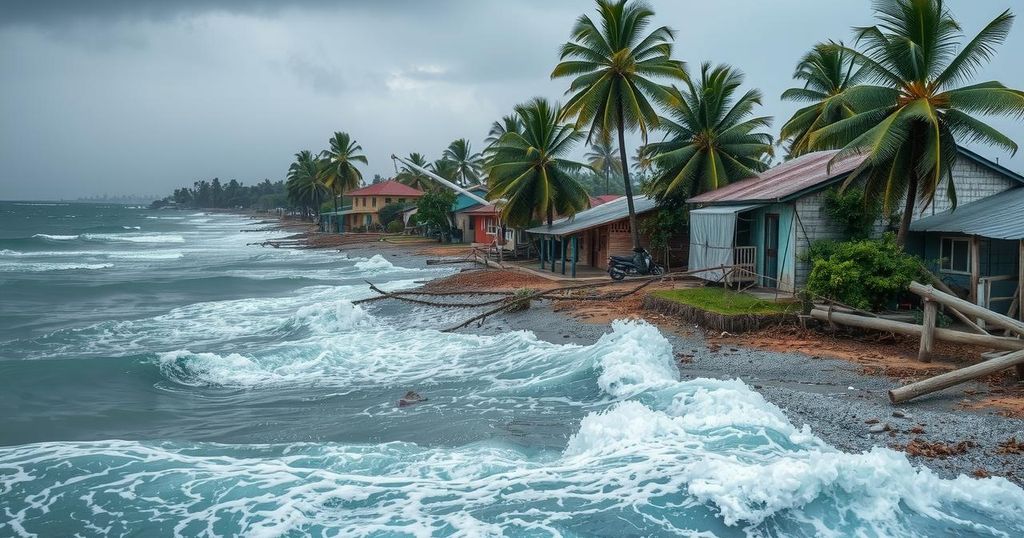Cyclone Chido struck northern Mozambique on December 15, causing 120 fatalities and injuries to 868 people, affecting over 680,000 individuals. The cyclone severely damaged over 150,000 homes and several schools and healthcare facilities. The Mozambican government established emergency shelters to assist the displaced population while underscoring the need for resilience against climate-related disasters.
Cyclone Chido has inflicted severe devastation on northern Mozambique, leading to a death toll of 120 individuals, with 868 others injured and affecting over 680,000 people. The cyclone made landfall on December 15, causing catastrophic flooding and destruction primarily in the provinces of Cabo Delgado, Nampula, and Niassa. The National Institute for Disaster Risk Management and Reduction (INGD) reported significant infrastructure damage, with over 150,000 homes, 250 schools, 89 public buildings, and 52 health facilities affected. The Mozambican government has established emergency shelters to provide refuge for those displaced, highlighting the urgent need for humanitarian support to address the crisis.
In response to the calamity, the INGD issued a statement on social media emphasizing the vulnerability of social infrastructure to climate change, remarking, “The Cyclone Chido once again highlights the vulnerability of social infrastructure to climate change and the need for resilient planning to mitigate future impacts.” Furthermore, Cyclone Chido, which originated as a tropical depression in the southwestern Indian Ocean on December 5, 2022, has demonstrated the increasing frequency and intensity of extreme weather events in this region.
Cyclone Chido is a recent tropical cyclone that affected northern Mozambique, illustrating the heightened risks posed by climate-related disasters. The cyclone’s formation over the Indian Ocean, its subsequent intensification, and ultimate landfall have manifested severe consequences for vulnerable communities. Prior to making landfall, the cyclone had already caused damage in Mayotte, setting a precedent for its destructive path. The Mozambique national disaster relief agency’s response underscores the urgent need for climate resilience and infrastructure planning in preventing future disasters.
In conclusion, Cyclone Chido has had a devastating impact on northern Mozambique, emphasizing the urgent need for effective disaster preparedness and response mechanisms. With significant loss of life and extensive destruction of property, the call for international humanitarian support has never been more critical. Furthermore, the event serves as a stark reminder of the vulnerabilities faced by regions susceptible to climate change and the imperative need for resilient infrastructure planning.
Original Source: english.mathrubhumi.com







